Sir Winston Churchill declines to contribute to biography
Col. George Marshall and Secretary of State for War Winston Churchill met shortly after World War I, when Marshall accompanied Gen. John Pershing on a visit to London. The two men got on well, laughing and joking. Neither could have imagined that they would be involved in fighting another world war less than 25 years later.
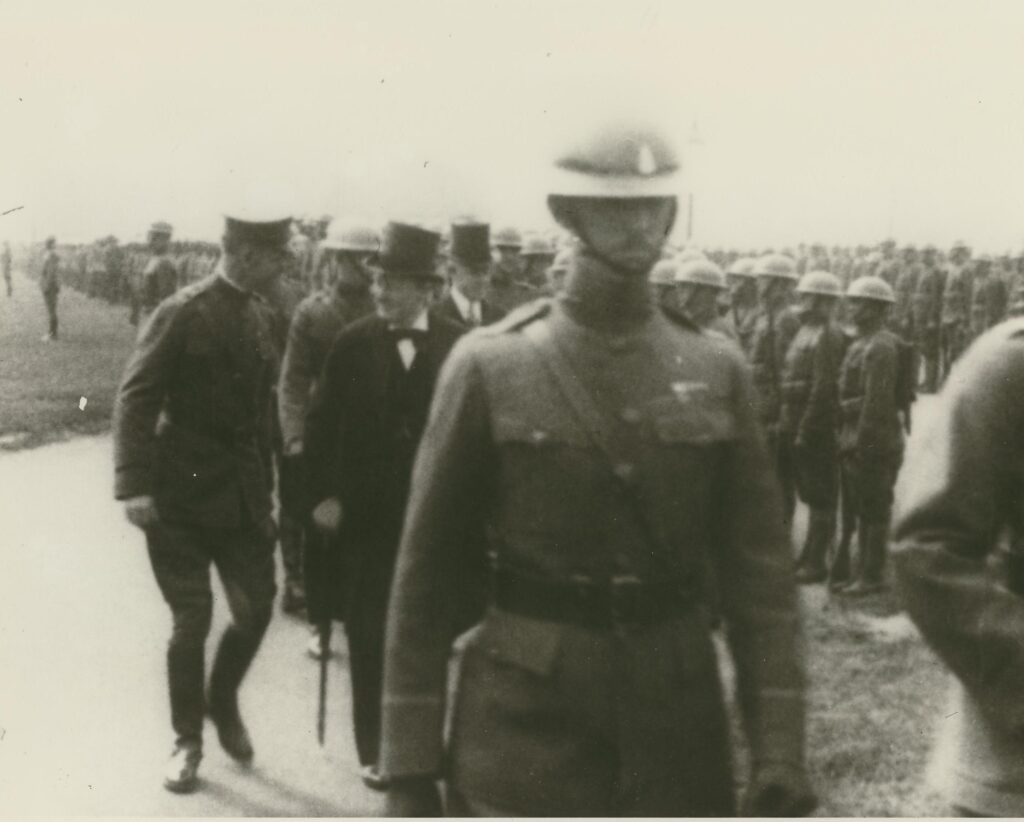
Col. George Marshall and Secretary of War Winston Churchill laugh together in London just after World War I.
During World War II, Gen. Marshall and Prime Minister Churchill didn’t do much laughing or joking together. Sometimes they even got angry with each other, arguing over where and when allied forces would fight. There was still great respect, just not always agreement.
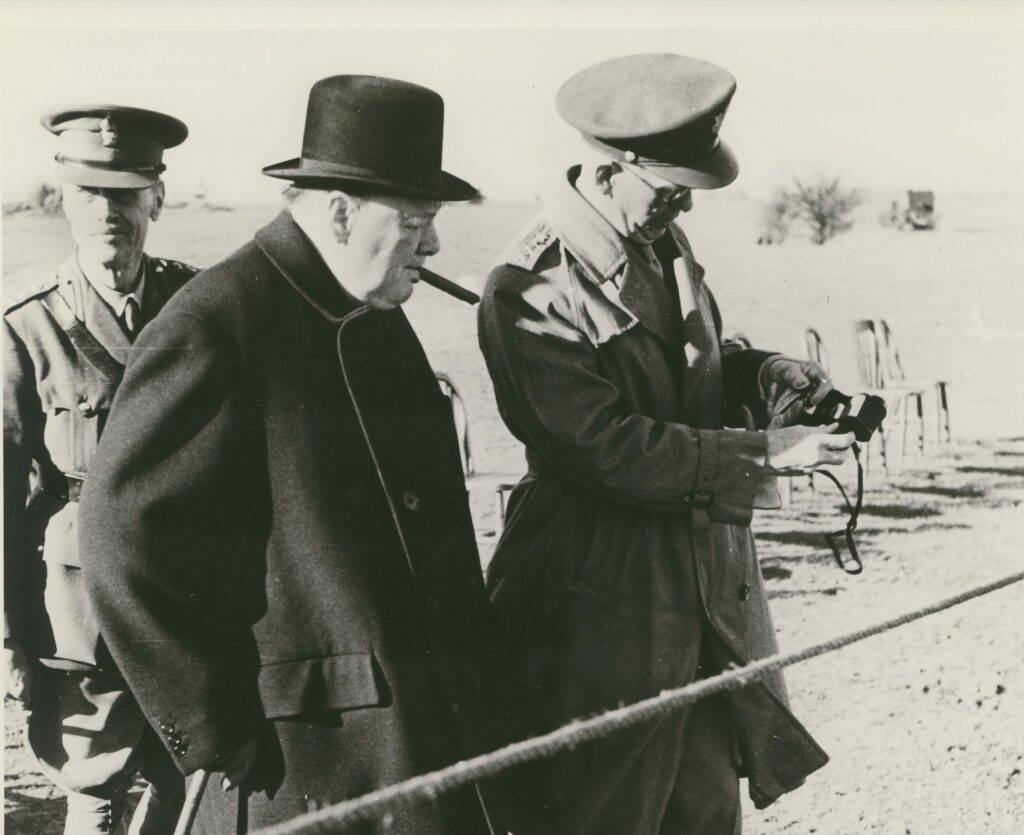
Prime Minister Winston Churchill and Gen. George Marshall at Salisbury Plains, England, watching an airborne soldier demonstration, 1942.
After the war, the Marshalls and Churchills spent time together during the coronation of Queen Elizabeth II, sharing laughs again.
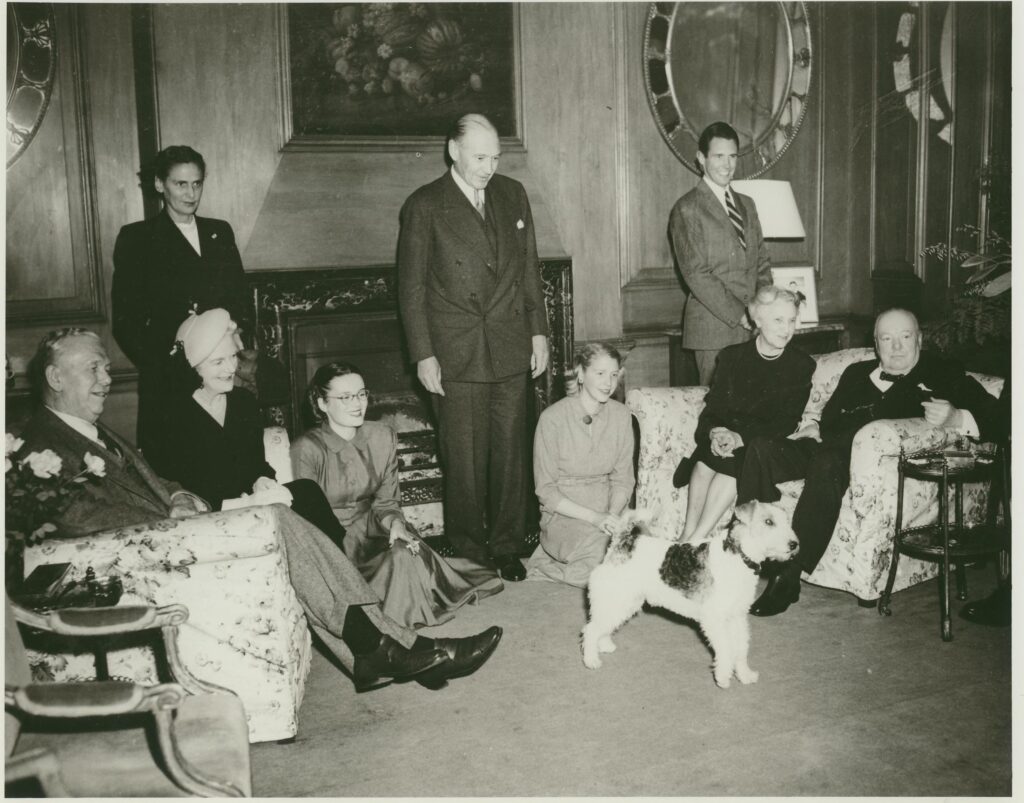
George and Katherine Marshall spend an evening with Clementine and Winston Churchill during the coronation of Queen Elizabeth II in 1953.
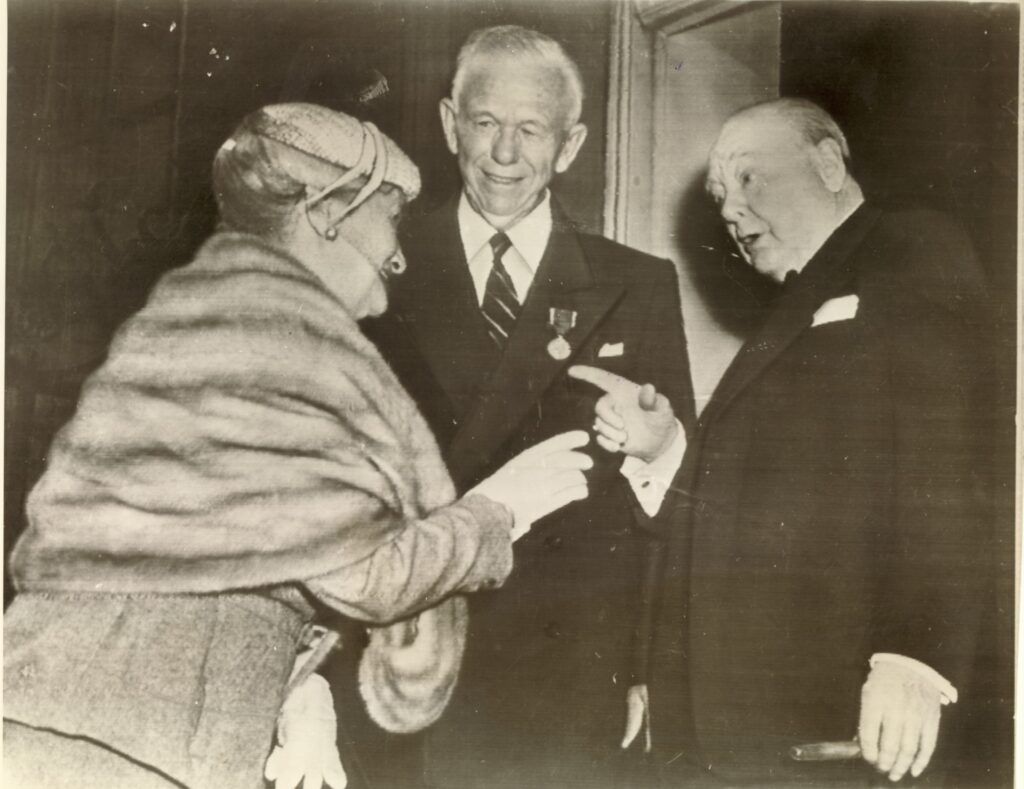
Teasing and laughter during that visit.
Churchill was one of Marshall’s last visitors at Walter Reed Hospital in 1959, and left in tears. On Marshall’s death, Churchill commented that “Succeeding generations must not be allowed to forget his achievements and his example.”
In early 1960, Dr. Forrest Pogue began organizing interviews with men and women who had worked with and known Marshall well, as part of his research for the four-volume biography on Gen. Marshall’s life and career. Letters were sent by Gen. Omar Bradley, then President of the George C. Marshall Foundation, asking for the cooperation of interviewees.
One such letter went to now-retired Sir Winston Churchill. His reply was somewhat surprising, “I would prefer not to undertake any recordings as you suggest.” He did, however, point out yet again “as I have publicly said, I entertain the very highest opinion of the late General Marshall.”
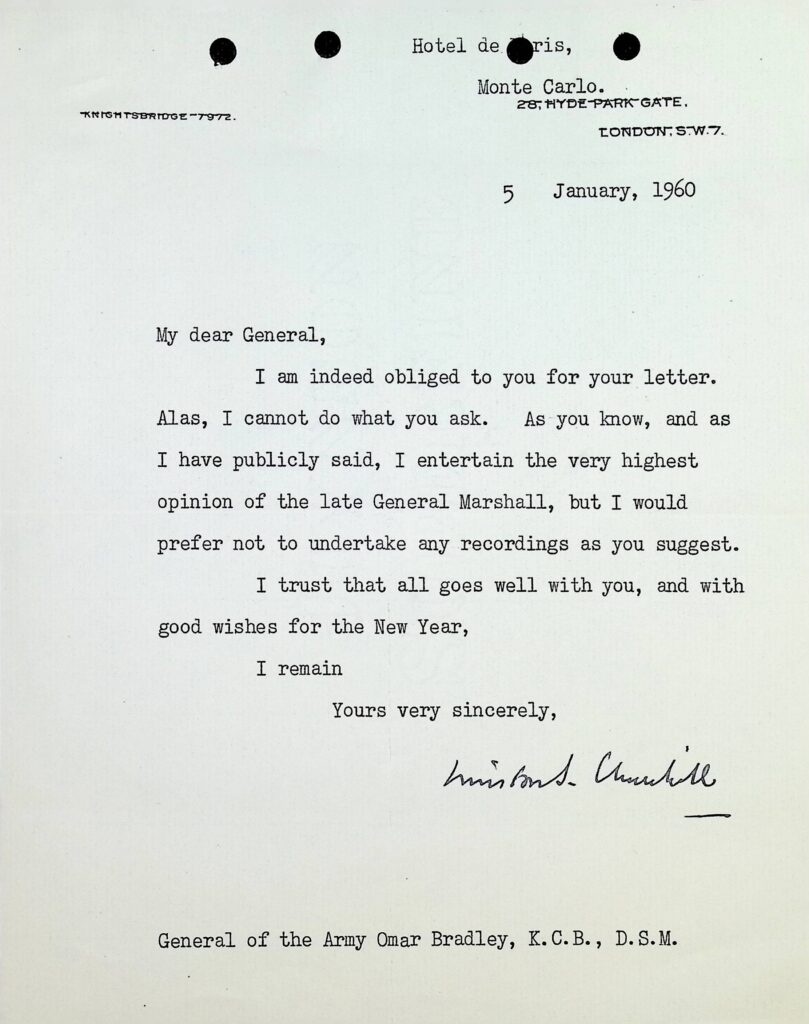
Letter from Sir Winston Churchill replying to Gen. Omar Bradley’s request for an interview for George Marshall’s biographer, Dr. Forrest Pogue.
So why was Churchill not willing to sit for an interview? Another Foundation document gives a hint, as it noted that an interview with Churchill could cover several days, depending “on his state of health.” Churchill had his first stroke in 1949, and another in 1953. By 1959, he was unable to hold a paintbrush and had to give up one of his favorite hobbies. Although there is no definitive reason for his refusal to be interviewed, it would seem that Churchill’s health was indeed poor.
It’s a shame; I’d love to read the transcript of that interview.
The list of Dr. Pogue’s interviews is available here: https://library.marshallfoundation.org/Portal/Default/en-US/Search/AdvancedSearch?userSearchId=39
Transcripts are available upon request.
Special thanks to Marshall Foundation Library volunteer Carroll Comstock, who located this letter while working on a project.
Melissa has been at GCMF since fall 2019, and previously was an academic librarian specializing in history. She and her husband, John, have three grown children, and live in Rockbridge County with two large rescue dogs. Keep up with her @MelissasLibrary.
